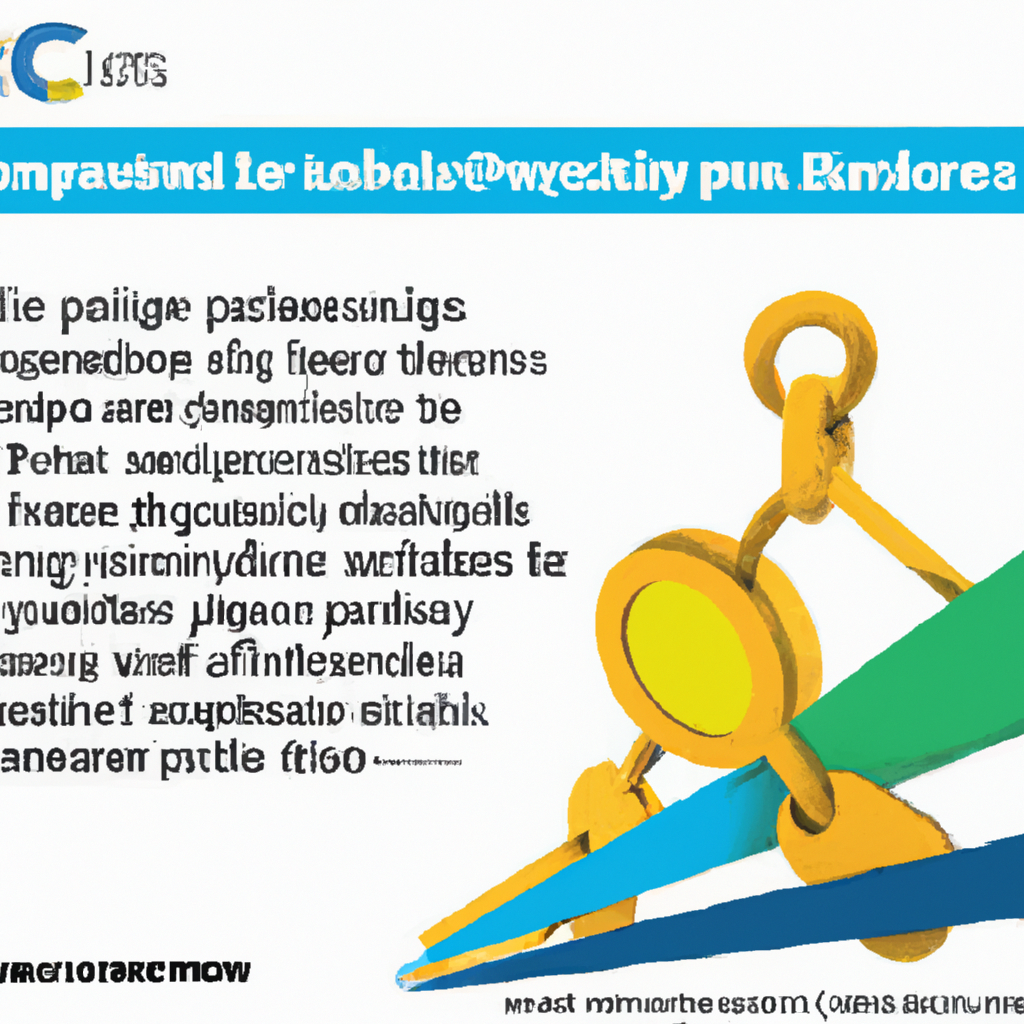
In the online world, where websites are constantly vying for attention, the question of what signals credibility and authority to Google is an important one. With so many sites clamoring for the top search engine rankings, it is crucial to understand the factors that influence Google’s assessment of a website’s trustworthiness. From quality content to reputable backlinks, this article explores the various elements that Google looks for when determining a site’s credibility and authority. So, if you’re eager to climb the ranks in search results and establish yourself as a credible source, read on to discover the secrets behind Google’s virtual stamp of approval.

This image is property of images.pexels.com.
Domain Authority
Age of the Domain
The age of the domain is an important factor in determining its authority and credibility to Google. Older domains are generally seen as more trustworthy because they have stood the test of time and have built a solid reputation over the years. Google tends to give more weight to domain age because it shows that the website has been around for a while and has likely gained valuable experience and expertise in its industry. However, it’s important to note that age alone is not enough to determine domain authority. Other factors such as content quality, backlinks, and user engagement also play a significant role.
Domain Trustworthiness
Domain trustworthiness is another crucial aspect that signals credibility and authority to Google. Trust is established through various factors, including the website’s integrity, privacy policy, security features, and overall reputation. Google favors websites that prioritize user safety and privacy, so having a secure HTTPS connection and utilizing SSL certificates can contribute to a higher domain authority. Additionally, websites with a history of malicious activities or suspicious behavior tend to have lower trustworthiness and may be penalized by Google.
Page Authority
Quality and Relevance of Content
The quality and relevance of the content on a webpage are strong indicators of its authority. Google values websites that provide high-quality, valuable, and informative content to users. The content should be well-written, free of errors, and address the needs and queries of the target audience. It should also be original and unique, offering a fresh perspective on the topic. Websites that consistently produce high-quality content have a greater chance of establishing authority and gaining higher rankings in search results.
Backlinks Profile
The backlinks profile of a webpage is another significant factor that influences its authority. Backlinks are essentially links from other websites that point to your webpage, indicating that your content is trustworthy and valuable. Google considers backlinks as votes of confidence, as they show that other websites find your content relevant and worth sharing. However, it’s essential to note that not all backlinks are created equal. High-quality backlinks from reputable and authoritative websites carry more weight and positively impact page authority.
User Engagement Metrics
User engagement metrics such as click-through rates, time spent on the page, and bounce rates also contribute to a webpage’s authority. Google values websites that provide a positive user experience and engage visitors effectively. A high click-through rate indicates that users find the webpage’s title and description appealing and relevant to their search queries. When users spend a significant amount of time on a webpage, it suggests that the content is interesting, informative, and valuable. On the other hand, a low bounce rate indicates that users find the webpage’s content engaging and relevant, encouraging them to explore further.
Backlinks
Backlink Quantity
The quantity of backlinks a webpage has is one of the factors Google considers when assessing its authority. Generally, the more high-quality backlinks a webpage has, the more authoritative it appears to Google. However, it’s important to emphasize that backlink quantity should not be pursued at the expense of quality. While having a large number of backlinks is valuable, it’s crucial to focus on obtaining backlinks from reputable and relevant sources rather than indiscriminately acquiring low-quality backlinks.
Backlink Quality
While backlink quantity is important, backlink quality holds even more weight in determining a webpage’s authority. Google values backlinks from reputable and authoritative websites because they indicate that the content on the linked webpage is credible and trustworthy. High-quality backlinks should come from sources that are relevant to the webpage’s content and industry. Additionally, natural backlinks obtained organically are more valuable than paid or manipulated ones.
Anchor Text Diversity
Anchor text diversity refers to having a variety of anchor texts used in backlinks pointing to a webpage. Using diverse anchor texts helps create a natural link profile and signals to Google that the webpage is relevant to various keywords or topics. It’s important to avoid overusing exact match or repetitive anchor texts, as this can raise red flags to Google and potentially lead to penalties. A diverse anchor text profile indicates that the webpage has earned backlinks naturally and is not engaging in manipulative tactics.
Contextual Relevance
Contextual relevance relates to the content surrounding a backlink and the relevancy of the webpage being linked to. Google values backlinks that appear in the context of relevant and related content. Backlinks from websites or articles that discuss similar topics to the linked webpage provide additional context and strengthen the webpage’s authority. It’s important to seek backlinks from reputable websites that have content aligned with the topic or industry of the linked webpage.
Content Quality
Relevance to Search Intent
Creating content that aligns with the search intent of users is paramount in establishing authority and credibility with Google. Understanding the purpose behind user searches and crafting content that directly addresses their queries signals to Google that the webpage provides valuable information and meets user needs. By conducting thorough keyword research and considering the intent behind specific search queries, you can ensure that your content is relevant and tailored to the audience you want to attract.
Accuracy and Reliability
Content accuracy and reliability are vital for gaining Google’s trust and establishing authority. Publishing content that is factually correct, well-researched, and supported by credible sources enhances a webpage’s credibility. Google values websites that provide accurate and reliable information, as it helps ensure the best user experience. It’s important to regularly update and review content to ensure its accuracy, correcting any outdated or misleading information.
Freshness and Timeliness
Fresh and timely content demonstrates a webpage’s relevance and authority in a rapidly evolving online world. Google places significance on websites that regularly produce new and up-to-date content, as it indicates that the webpage is actively engaging with its audience and industry. By consistently publishing fresh content, you can establish yourself as an authoritative source and potentially attract more backlinks, further enhancing your page authority.

This image is property of images.pexels.com.
User Experience
Mobile Friendly Design
A mobile-friendly design is crucial for providing a positive user experience, as more users access the internet through mobile devices. As such, Google prioritizes mobile-friendly websites in its search rankings. A responsive design that adapts to different screen sizes and provides a seamless browsing experience is key to ensuring that users can easily navigate and consume the content on your webpage. Optimizing images, utilizing legible fonts, and minimizing page load times are essential aspects of creating a mobile-friendly design.
Page Load Speed
Page load speed directly impacts user experience and, subsequently, a webpage’s authority. Slow-loading webpages frustrate users and increase the likelihood of them abandoning the site, leading to higher bounce rates. Google acknowledges this and considers page load speed as a ranking factor. Optimizing code, compressing images, and leveraging browser caching are some methods to improve page load speed and provide a better user experience, ultimately enhancing the authority of a webpage.
Website Responsiveness
Website responsiveness is closely tied to user experience and plays a significant role in establishing a webpage’s authority. A responsive website seamlessly adjusts to different devices and screen sizes, making it easy for users to navigate and interact with the content. Google recognizes the importance of website responsiveness and rewards websites that provide a consistent and intuitive experience across various platforms. By ensuring your website is responsive, you can enhance user engagement and signal credibility to Google.
Low Bounce Rates
Low bounce rates indicate that users find a webpage’s content engaging, relevant, and valuable, increasing its authority in the eyes of Google. When users visit a webpage and immediately leave without interacting with other pages, it suggests that the content did not meet their expectations or needs. Google interprets high bounce rates as a potential signal of low-quality or irrelevant content. To reduce bounce rates and improve authority, website design, content quality, and user engagement should be optimized to encourage visitors to explore further.
Technical SEO
Crawlability and Indexability
Ensuring that search engine crawlers can efficiently crawl and index your webpage is crucial for establishing authority. Crawlability refers to a webpage’s ability to be discovered and explored by search engine bots, while indexability refers to its inclusion in search engine indices. Optimizing robots.txt files, XML sitemaps, and internal linking structures can assist in improving crawlability and indexability, enabling search engines to better understand the content and relevancy of your webpage.
URL Structure
A well-structured URL contributes to a webpage’s authority. A clear and descriptive URL helps both users and search engines understand the content of the page. Including relevant keywords in the URL can indicate relevance to search queries and boost visibility in search results. Additionally, utilizing hyphens to separate words in the URL and avoiding dynamically generated parameters can improve readability and make the URL more user-friendly.
Site Architecture
An organized and logical site architecture enhances the authority and crawlability of a webpage. A clear site structure with intuitive navigation makes it easier for both users and search engines to explore and understand the content. By categorizing content into distinct sections and using hierarchical menus or breadcrumb navigation, you can create a smooth user experience and improve the overall authority of your website.
Hreflang Tags
Hreflang tags are crucial for multilingual and international websites, helping Google understand which language versions of a webpage to display to users based on their location and language preferences. By implementing hreflang tags correctly, you can ensure that users are directed to the most relevant and appropriate language versions of your webpage. This improves user experience and establishes authority by providing content that is tailored to a user’s language and location.

This image is property of images.pexels.com.
Authoritative Backlinks
High-Quality and Reputable Sources
Obtaining backlinks from high-quality and reputable sources is essential for establishing authority. Backlinks from authoritative websites signal to Google that your webpage is trusted and credible. Seeking opportunities to collaborate or receive mentions from renowned industry influencers, experts, and well-established publications can significantly enhance your authority and reputation.
Variety of Referring Domains
Having a variety of referring domains linking to your webpage indicates that your content is valued and trusted by different sources. When multiple reputable websites link to your webpage, Google recognizes it as a signal of authority. To achieve a diverse backlink profile, engage in content promotion, guest blogging, and relationship building within your industry to attract links from various domains.
Natural Link Profile
Maintaining a natural link profile is crucial to avoid penalties and establish authority. Google places importance on organic, naturally-earned backlinks that are not manipulated or obtained through spammy practices. A balanced link profile with a mix of dofollow and nofollow links, as well as a combination of anchor text variations, helps demonstrate authenticity and signals to Google that your authority is genuine and earned through quality content and interactions.
Social Signals
Social Engagement
Social engagement, such as likes, comments, and shares on social media platforms, can indirectly influence a webpage’s authority. While social signals are not direct ranking factors, they can contribute to increased visibility and traffic, which in turn may lead to more backlinks and user engagement. A strong social media presence that encourages audience interaction and sharing can help signal credibility and authority to Google.
Shares and Mentions
When your content is shared and mentioned by others on social media, it indicates its value and relevance. The more shares and mentions your content receives, the more likely it is to be seen and appreciated by a wider audience. This can lead to increased visibility, increased traffic, and potentially more backlinks, all of which contribute to establishing authority and credibility with Google.
Social Media Authority
Building authority on social media platforms can indirectly influence a webpage’s authority. Establishing an active and influential presence on social media platforms showcases your expertise and reputation within your industry. By consistently providing valuable content, engaging with your audience, and building a strong following, you can amplify your authority and positively impact your webpage’s rankings in search results.

Site Reputation
Presence of Spam Signals
Maintaining a clean and spam-free website is vital for establishing authority. Google penalizes websites that engage in spammy practices such as keyword stuffing, hidden text, or cloaking. These practices undermine credibility and damage a website’s reputation. Regularly monitoring and removing any spam signals from your website helps ensure that it remains trustworthy and authoritative in the eyes of Google.
Manual Penalties
In some cases, Google may manually penalize websites that violate its guidelines or engage in manipulative tactics. Manual penalties can significantly impact a website’s authority and visibility in search results. It’s important to adhere to Google’s guidelines and proactively monitor your website for any potential issues or violations. Resolving these issues promptly and demonstrating a commitment to playing by the rules can help restore authority and regain Google’s trust.
Negative Reviews or Feedback
Negative reviews or feedback about your website can harm its reputation and authority. Google takes into account user reviews and ratings, particularly for local businesses, when determining search rankings. It’s crucial to actively manage your online reputation by promptly addressing and resolving any negative feedback or complaints. By demonstrating a commitment to customer satisfaction and addressing concerns, you can enhance your reputation and establish authority.
Brand Authority
Brand Visibility and Recognition
Brand visibility and recognition play a vital role in establishing authority. When users consistently encounter your brand across various platforms and channels, it reinforces your presence and authority within your industry. Building a strong brand through consistent messaging, visual identity, and marketing efforts helps establish familiarity and trust, signaling credibility to Google and users alike.
Digital Footprint
A robust digital footprint, encompassing a strong online presence and engagement, contributes to brand authority. This includes active participation in social media, relevant industry forums, and online communities. By regularly producing and sharing valuable content, participating in discussions, and establishing thought leadership, you can expand your digital footprint and solidify your authority in your industry.
Brand Mentions
Brand mentions, both linked and unlinked, contribute to a webpage’s authority and relevance. When your brand is mentioned by others, it signals to Google that your website is reputable and worthy of recognition. Aim to earn brand mentions through public relations efforts, collaborations, and the production of valuable content. By monitoring brand mentions and actively fostering relationships within your industry, you can enhance your authority and credibility.
